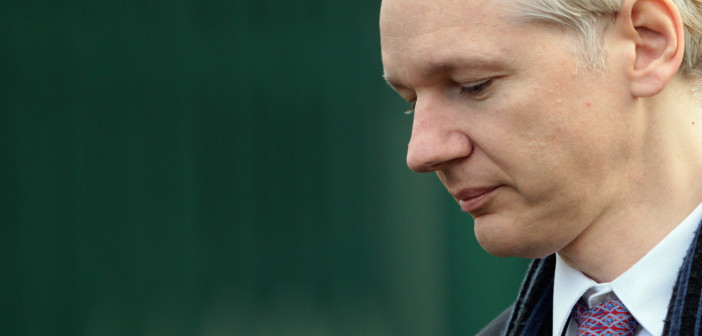After a UN legal panel declared its support for Julian Assange on 5 February, claiming he has been “arbitrarily arrested”, things have not in fact changed much for the WikiLeaks editor-in-chief, whose European Arrest Warrant stayed on hold.
The fugitive from the law shared his disappointment publicly on the Swedish and British responses to the panel finding, in a press conference given via Skype from the inside of the Ecuadorian embassy in London, where he has been confined since he sought refuge there in 2012. Ecuador has subsequently granted asylum to Assange.
As always with London’s most bizarre guest, a media frenzy and dozens of journalists and TV crews formed outside the small Ecuadorian embassy in Knightsbridge – just behind Harrods department store – wishing perhaps for an appearance on the balcony.
Clearly as long as Swedish justice does not drop the arrest order, Assange does not stand a chance of leaving the 24/7 surveilled building without facing his rape allegation in Sweden.
Many people wonder if it is worth staying for so long locked in a tiny room, far from your family and with an increasing amount of citizens blaming you for obstructing the legal process and wasting police resources. Some, on the other hand, talk about a conspiracy and claim that Assange would be sent to the US to face charges in relation to WikiLeaks revelations – despite no formal US extradition request to Sweden has yet being made.
The British government made clear in a statement that the UN panel’s announcement changes nothing: “We completely reject any claim that Julian Assange is a victim of arbitrary detention.” And they declared that Assange was “voluntarily avoiding lawful arrest” by remaining in the Ecuadorian embassy.
The Swedish foreign ministry, for its part, said that “Mr Assange has chosen voluntarily to stay at the Ecuadorian embassy and is free to leave it at any point. Thus, he is not being deprived of his liberty there due to any decision or action taken by the Swedish authorities.”





